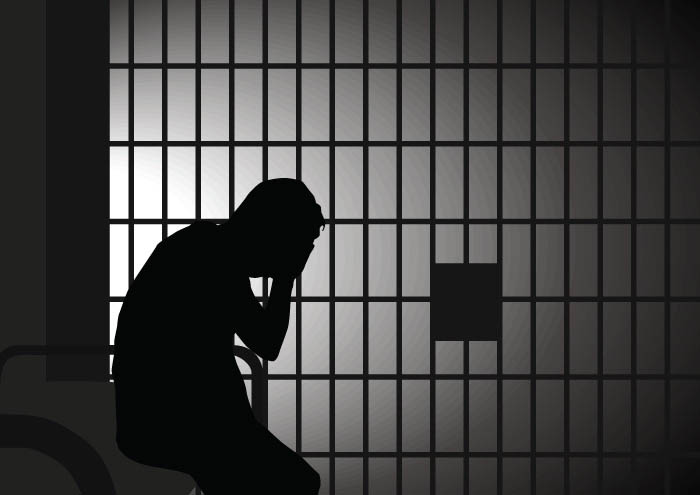
Written by:

Medically Reviewed by:
Last Updated:
February 3rd, 2025
Depression and Addiction | Symptoms and Treatment
One in six people experience depression in the UK; according to research, these individuals are 25% more likely to abuse substances. Sadly, depression and addiction are two conditions that often go hand in hand, feeding off of each other and resulting in harmful cycles of behaviours that may seem impossible to escape.
A dual diagnosis of depression and addiction requires a complex treatment plan and a deep understanding of both conditions. At Recovery Lighthouse, we focus on treating your addiction and helping you understand any co-occurring mental health issues like depression.
What is depression?
Sadness is a normal human emotion and a healthy reaction to certain stimuli. However, when this turns into a feeling of inescapable despair that lasts for two or more weeks, it is classified as depression.
Some signs of depression include:
- Inability to experience joy or pleasure
- Loss of interest in previously enjoyed activities
- Difficulty concentrating
- Little to no motivation
- Changes in sleeping and eating patterns
- Lack of energy
- Loss of self-esteem and low confidence
- Suicidal ideations
- Physical aches and pains
The constant hopelessness may drive you to abuse substances to numb emotional pain and self-medicate, exposing you to the risk of addiction. Drugs and alcohol can provide you with a temporary escape from the crushing weight of depression, but substance abuse and addiction only work to exacerbate mental health symptoms in the long run.
Do I have depression and addiction?
Suffering from this dual diagnosis can be extremely overwhelming, so knowing the signs and reaching out for help is important.
Take a moment to answer the following questions:
- Do I turn to substances when I am experiencing negative emotions?
- Do I use substances as a way to quell the symptoms of depression?
- Do I need drugs or alcohol to function throughout the day?
- Have I tried to stop using substances but been unable to?
- Have I experienced financial, legal or relationship problems due to substance use?
- Do I experience withdrawal symptoms when I try to quit drugs or alcohol?
- Have I experienced persistent sadness and despair for over two weeks?
If you can relate to the above questions, you may have depression and addiction. These conditions are incredibly difficult to manage single-handedly, often leading to vicious cycles of shame, guilt, sadness and substance abuse. However, it is possible to stop this downward spiral through an effective rehab treatment programme.
The truth about depression and addiction
To effectively address conditions like depression and addiction, it’s crucial to distinguish fact from fiction. Let’s debunk some common misconceptions surrounding these conditions:
“Depression and addiction is a choice – you can snap out of it if you really want to.”
Overcoming depression and addiction is not simply a case of “mind over matter” – these are two serious conditions that require comprehensive treatment. It is not possible to switch off feelings of depression, and it is equally as challenging to battle a psychological and physical dependence on substances.
“Treating addiction will cure depression.”
Treating addiction on its own will not cure depression and vice versa. To successfully overcome depression alongside addiction, you must address both issues simultaneously via an effective rehab programme.
“Only weak people struggle with depression and addiction.”
Depression and addiction can affect anyone, regardless of your character. Having to wake up and face these conditions each day is a sign of bravery and strength. Admitting that you need help and taking steps towards recovery requires immense courage.
How are depression and addiction treated at Recovery Lighthouse?
Recovery Lighthouse offers a person-centred approach to treating addiction, and can treat anyone who’s depression is a secondary side-effect of their substance use. Our dedicated team of experienced professionals comprehends the distinct challenges of a dual diagnosis, and they are here to provide unwavering support as you progress towards your goals of overcoming addiction. Throughout your comprehensive rehab treatment programme, you will have access to a safe and encouraging environment, free from the burdens of daily life, allowing you to concentrate solely on your recovery.
Recovery Lighthouse also offers a variety of therapies, including:
- Dialectical behaviour therapy (DBT): DBT focuses on mindfulness, stress management and emotional regulation to reduce symptoms of depression and reduce the need to abuse substances.
- Group therapy: Group therapy creates a secure and nurturing environment where individuals can openly share their stories and gain insights from others who have faced similar struggles. This sense of community and belonging plays a pivotal role in fostering long-term recovery.
- Family therapy: Family therapy allows you to work on your familial relationships and provides a valuable support network in times of emotional hardship. It teaches you how to communicate effectively, set healthy boundaries and repair any damage that addictive behaviours may have caused.
- Holistic treatments: Yoga and meditation, art therapy, music therapy and other holistic activities are part of the Recovery Lighthouse treatment programme to create a sense of well-being and promote a healthy lifestyle.
At Recovery Lighthouse, we are committed to providing compassionate and effective care for those struggling with depression to overcome their addiction. Throughout your journey towards recovery, our team of experienced professionals will be by your side, providing you encouragement at every step of the way.
Freedom from depression and addiction
Starting the challenging journey of recovery from addiction when dealing with your mental health may seem daunting, but with the appropriate support, it is absolutely possible to rediscover the joy in your life and overcome your addiction.
At Recovery Lighthouse, we provide the opportunity to break free from these debilitating conditions, enhance your mental and physical wellbeing, regain a sense of purpose and direction, and elevate your self-esteem. If you’re prepared to take that crucial first step towards a better tomorrow, don’t hesitate to reach out to our admissions team and start treatment today.



